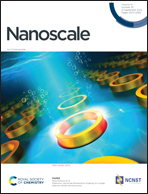Machine learning-based prediction and inverse design of 2D metamaterial structures with tunable deformation-dependent Poisson's ratio†
Abstract
With the aid of recent efficient and prior knowledge-free machine learning (ML) algorithms, extraordinary mechanical properties such as negative Poisson's ratio have extensively promoted the diverse designs of metamaterials with distinctive cellular structures. However, most existing ML approaches applied to the design of metamaterials are primarily based on a single property value with the assumption that the Poisson's ratio of a material is stationary, neglecting the dynamic variability of Poisson's ratio, termed deformation-dependent Poisson's ratio, during the loading process that a metamaterial other than conventional materials may experience. This paper first proposes a crystallographic symmetry-based methodology to build 2D metamaterials with complex but patterned topological structures, and then converts them into computational models suitable for molecular dynamics simulations. Then, we employ an integrated approach, consisting of molecular dynamics simulations capable of generating and collecting a large dataset for training/validation, in addition to ML algorithms (CNN and Cycle-GAN) able to predict the dynamic characteristics of Poisson's ratio and offer the inverse design of a metamaterial structure based on a target quasi-continuous Poisson's ratio-strain curve, to eventually unravel the underlying mechanism and design principles of 2D metamaterial structures with tunable Poisson's ratio. The close match between the predefined Poisson's ratio response and that from the generated structure validates the feasibility of the proposed ML model. Owing to the high efficiency and complete independence from prior knowledge, our proposed approach offers a novel and robust technique for the prediction and inverse design of metamaterial structures with tailored deformation-dependent Poisson's ratio, an unprecedented property attractive in flexible electronics, soft robotics, and nanodevices.



 Please wait while we load your content...
Please wait while we load your content...